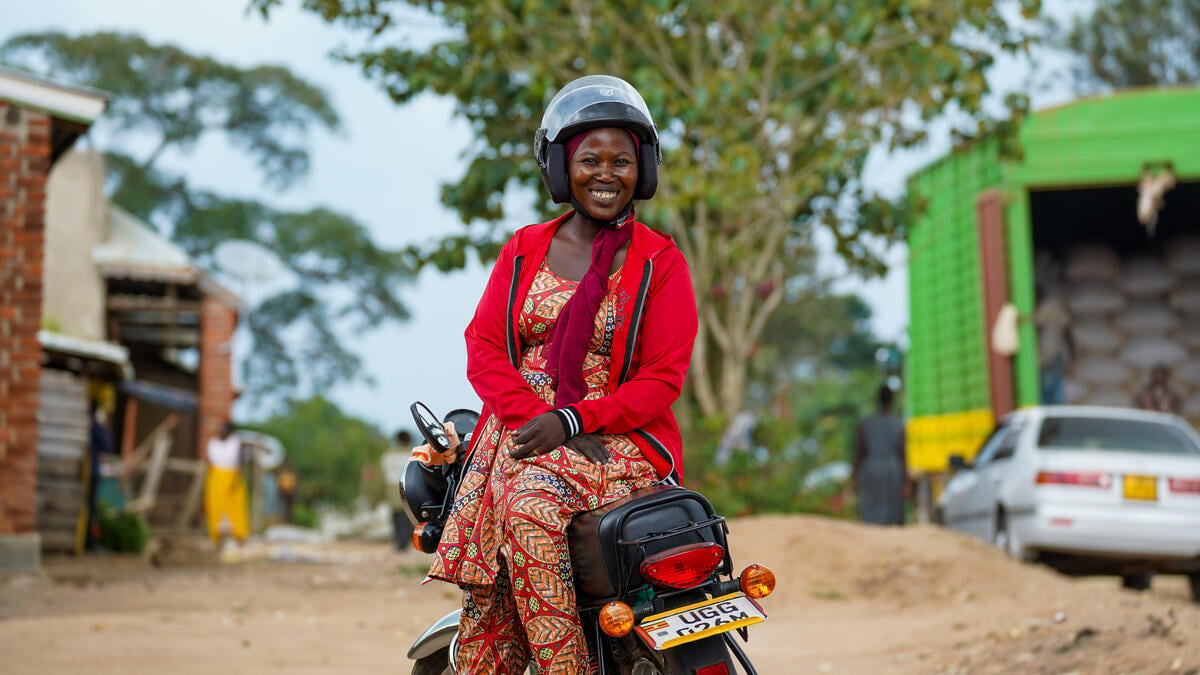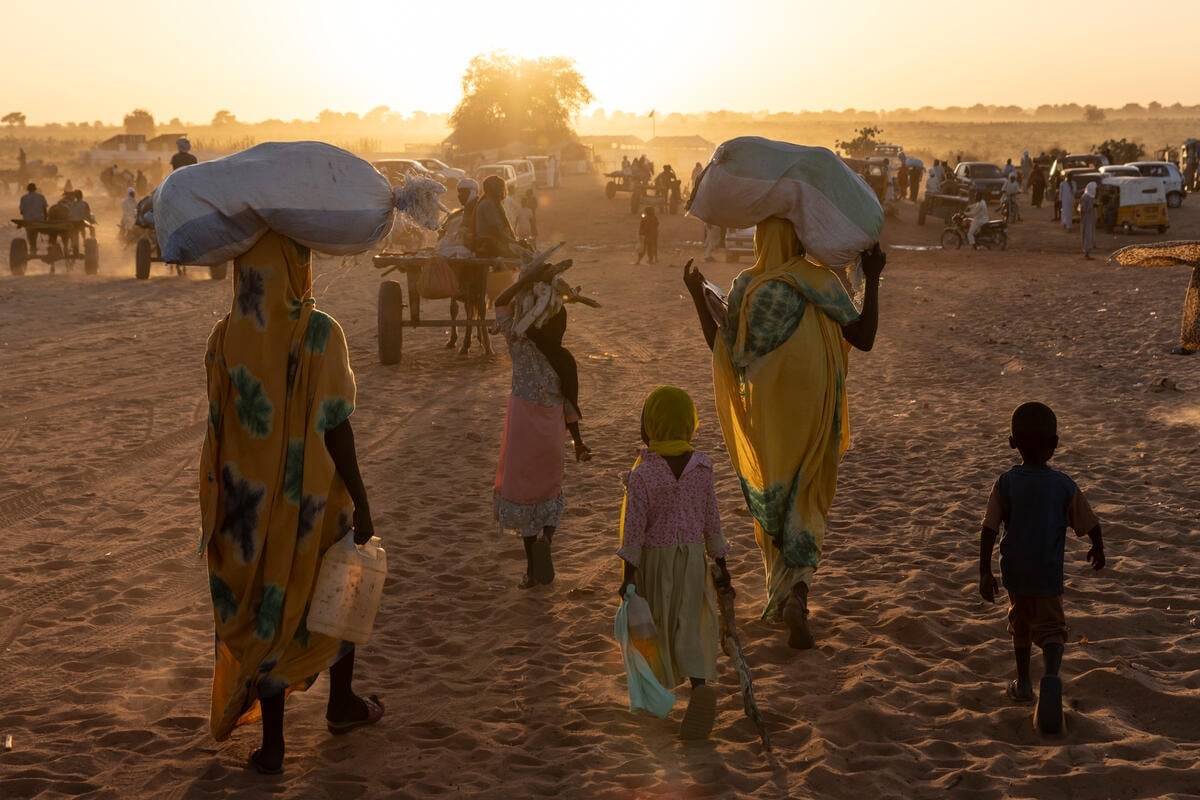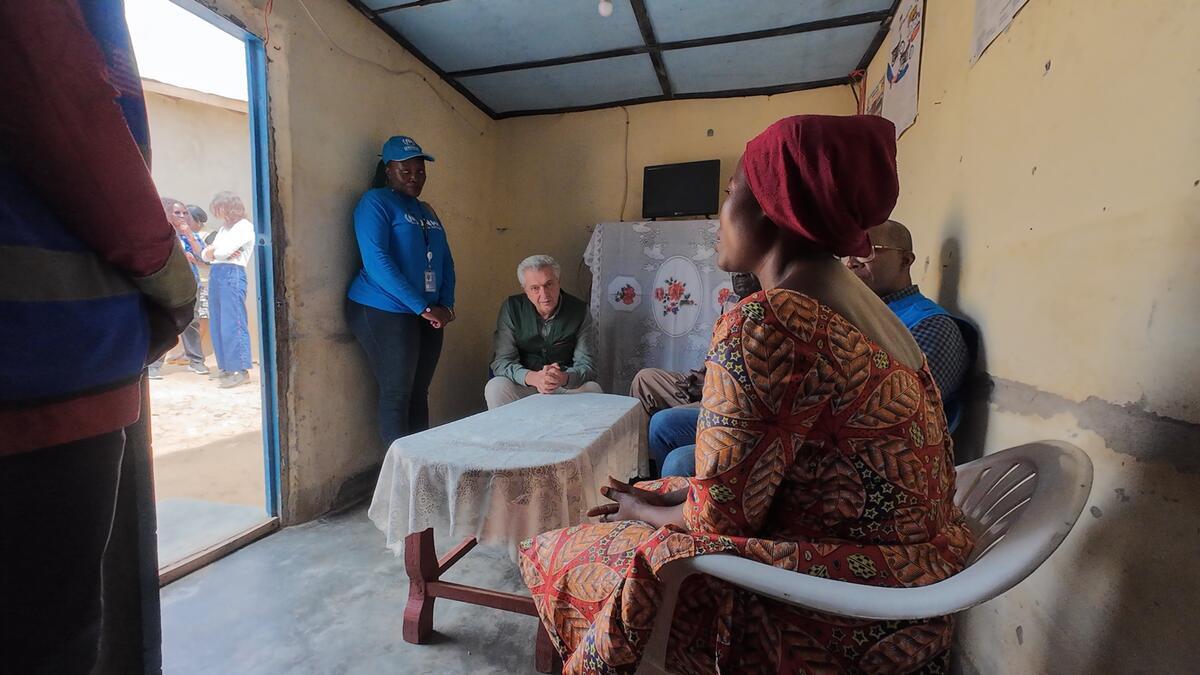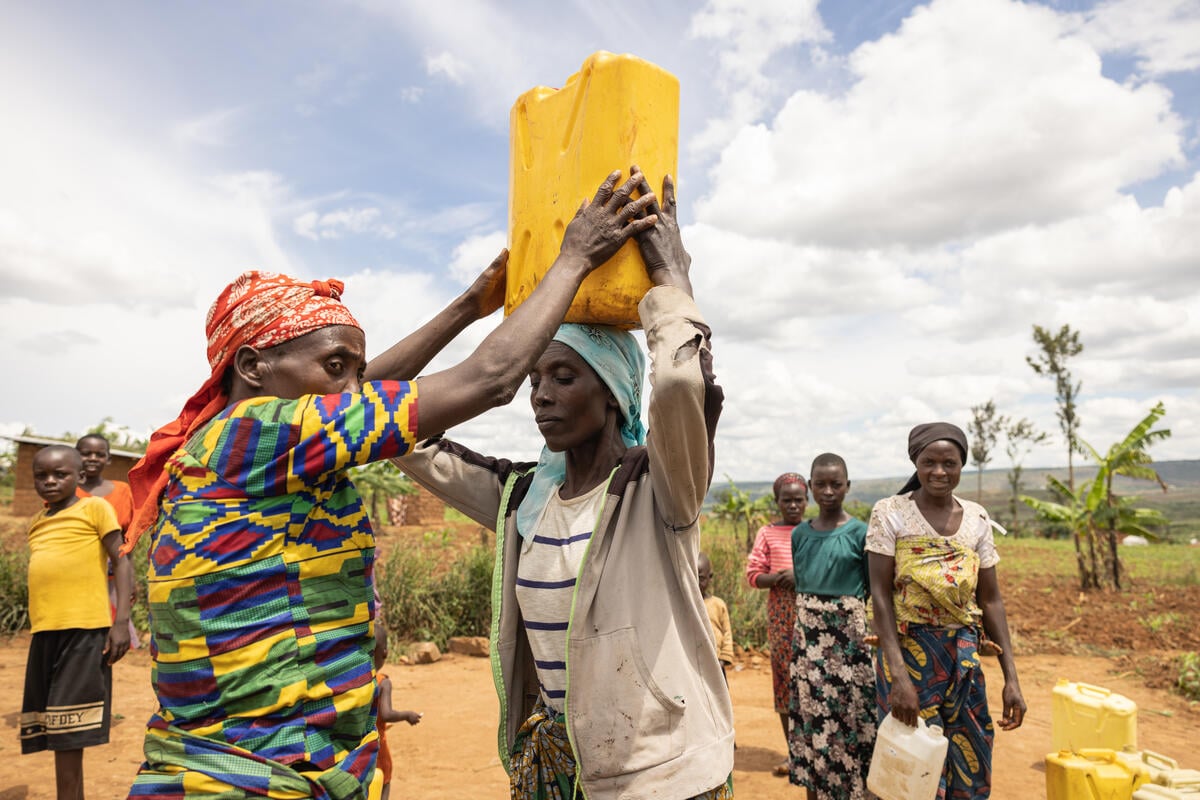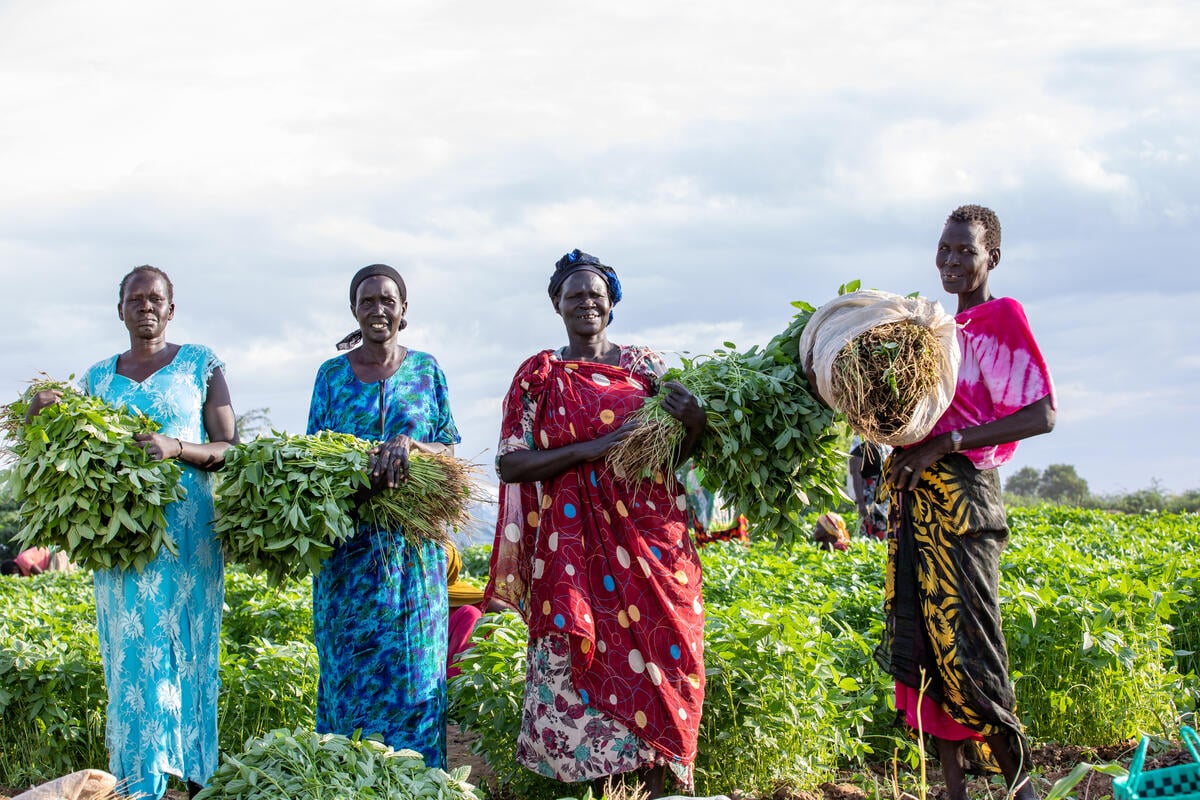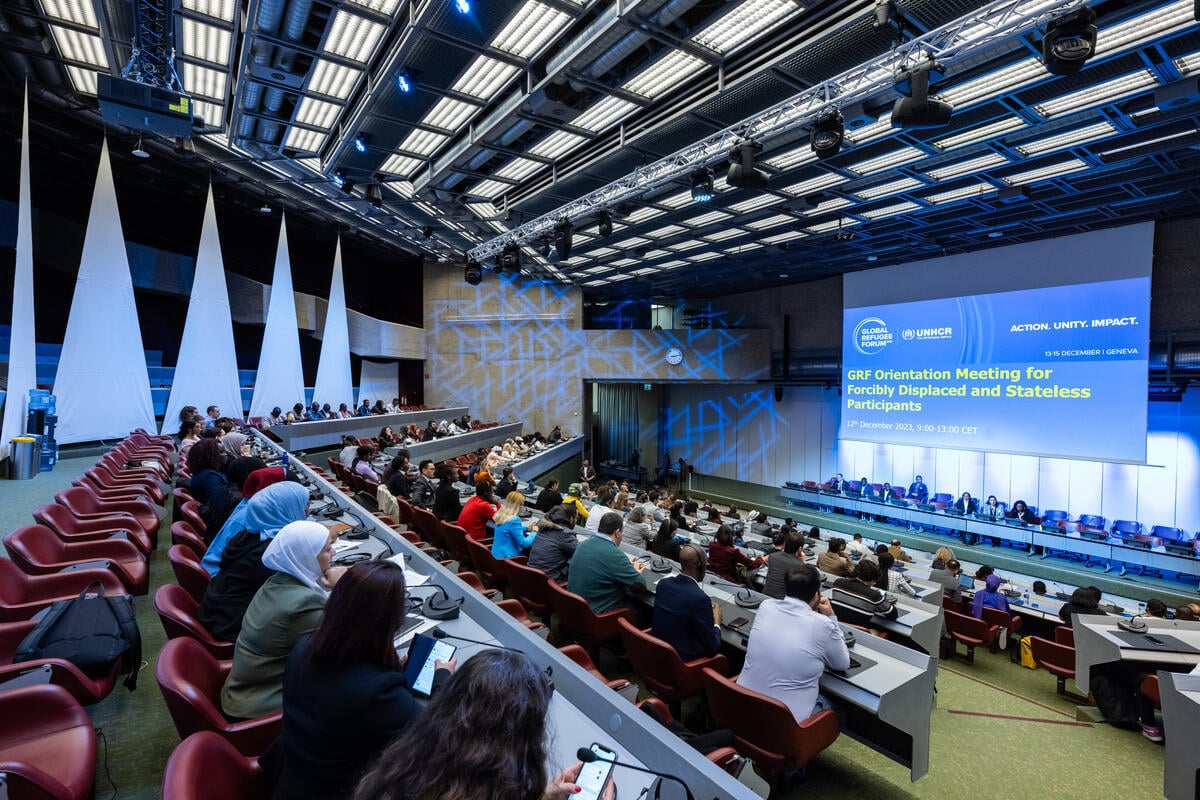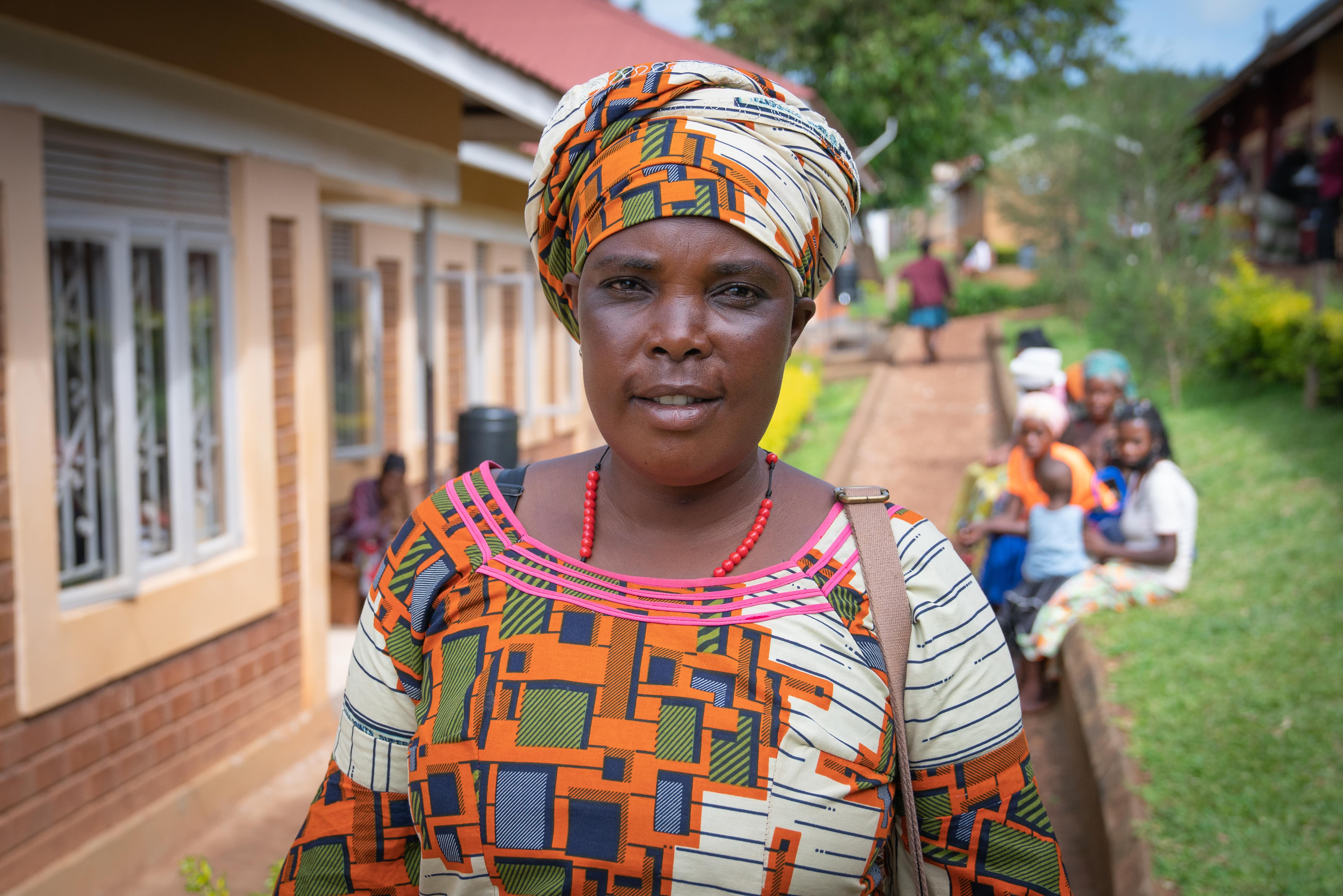A web of love and solidarity keeps Eritrean refugees afloat in Kampala
A web of love and solidarity keeps Eritrean refugees afloat in Kampala

KAMPALA, Uganda, April 11 (UNHCR) - The way their heads touch when they speak, their silent camaraderie, the ease with which the little boy passes from one pair of arms to the other, Liya and Yordanos look and act like mother and daughter. In fact, they only met five weeks ago.
Outside a government refugee registration office in the Ugandan capital, the two Eritrean women are sitting on wooden benches under a tarpaulin roof in a crowd of patient asylum-seekers. "The best thing Eritrean people do here is help each other," says Liya, looking fondly at her protégé's two-year-old son Noah, who's chasing chickens in the stuffy yard.
"They're with you when you are alive, and also after death," Liya adds. "The last thing they will do, when one of us dies, is collect money to send our bodies back to Eritrea."
Being supported by total strangers is - perhaps surprisingly - commonplace in a city undergoing intense urbanization and facing a parallel upsurge in the numbers of asylum-seekers and refugees. Peer support from the community has become a vital safety net. This is why Liya came to the registration centre, with Yordanos, Noah and another Eritrean family of four - to provide the same support she once received, and to help them navigate administrative procedures.
"In crowded bus stations, people recognize each other by their features," says Maria Mangeni, UNHCR's senior community services assistant in Kampala. "Bus drivers, vendors, any fellow citizens will help them find a relative," she explains. "They are introduced to someone, who introduces them to someone else and soon they have a place to stay."
This is what happened to Liya when she fled Eritrea five years ago with her two youngest children. She said she was persecuted by the government for helping her oldest son avoid forced conscription at the age of 16, two years younger than the law permits. She fled first to Juba in South Sudan, a place she found harsh and unsafe. She has no idea what happened to that boy or the husband she left behind in Eritrea.
"I had absolutely nothing," she recalls of her time in Juba. "Some Eritreans I knew there gathered money to pay the bus fare to Uganda for me and the children; they told me it was a peaceful place, with good schools. Then they called friends to come and welcome me."
Since 2006, Uganda has allowed refugees to live anywhere they want in Kampala, as long as they can support themselves.
"To be allowed to remain in the city, refugees need to prove they can afford to buy food, pay rent and provide an education to their children," says Apollo Kazungu, Uganda's commissioner for refugees.
This also means they get less humanitarian aid than if they choose to live in refugee settlements in other parts of Uganda. And although cities often provide more job opportunities, achieving economic security remains very challenging. Under such circumstances, social networks have become the cornerstone of coping strategies for displaced people.
"All I have right now is what is given to me," Yordanos says in perfect English. "When I arrived, a friend in Kampala gave me Liya's contact, told her I needed a roof. I've been living in Liya's room with Noah ever since."
Liya's second son found a job at an Internet café and is providing for all of them, paying the rent, buying the food and covering his sister's school fees. Yordanos hopes she can soon find work also and repay her neighbour's generosity. In the meantime, she is doing whatever she can in her precarious situation. Her language skills are a great asset in the registration office where she goes around discreetly, offering to act as an interpreter for other Eritrean families.
"Ethiopians and Eritreans, probably because of the barriers of language and the dreadful circumstances they have gone through, tend to struggle more when they arrive," observes UNHCR's Mangeni. "But they very rarely come to us for help. Whenever they do, I'm sure it's because they're between a rock and a hard place. They are that strong, they never give up. Even if they're left with one piece of bread they will share it."
And so, through the harshness of daily survival, Liya finds strength amongst her neighbours. Exchanging another knowing glance with Yordanos, she says quietly in her mother tongue: "Yfetwom, yfetweni. [I love them, they love me.]"
By Melanie Senelle in Kampala, Uganda


